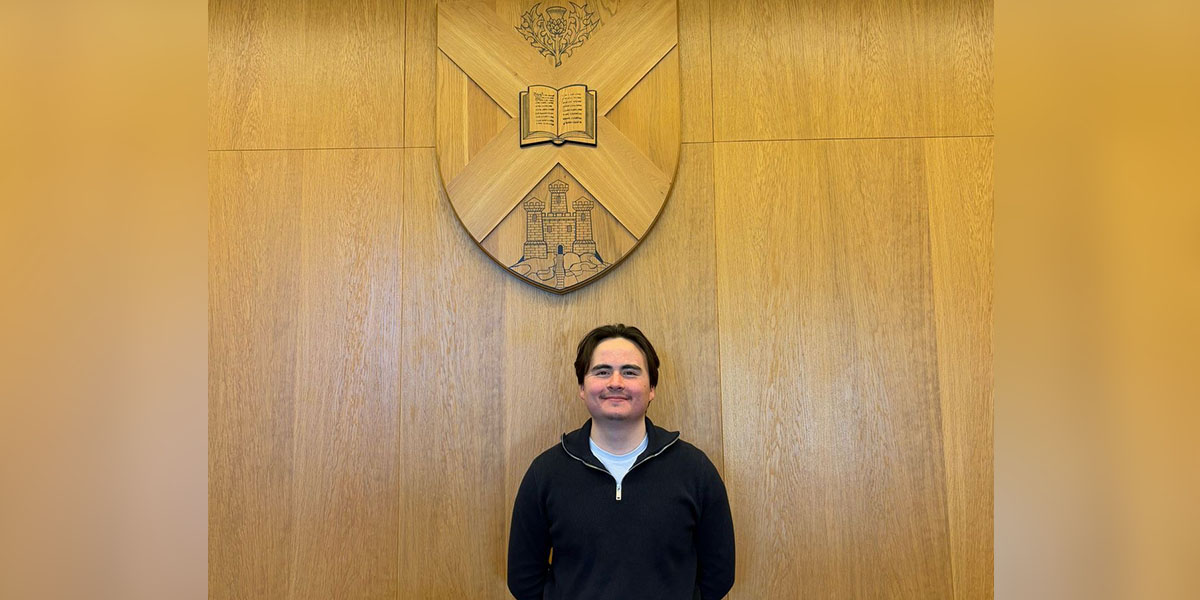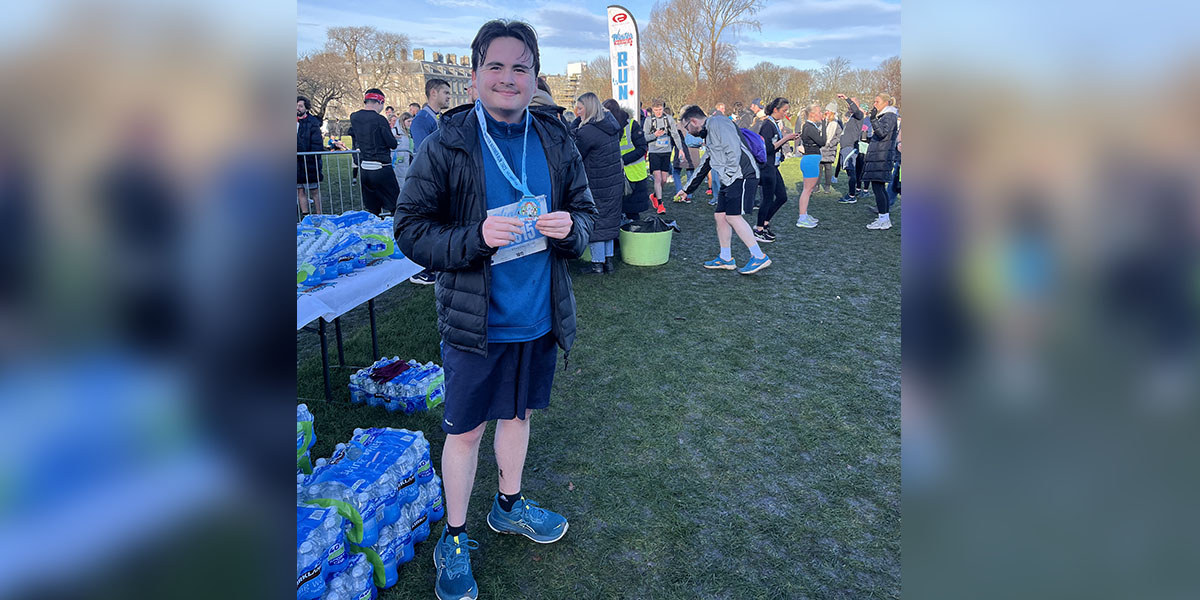Why I did a Masters – and how it’s going so far

By Graham, from Germany, studying LLM Intellectual Property Law
Hello, my name is Graham. I’m currently enrolled in the LLM Intellectual Property Law at the University of Edinburgh. I grew up in Frankfurt, Germany, and that’s where I did my high school education. After that, I moved to Aberdeen and studied for my undergraduate degree – the LLB in Scots Law with English Law.
Why Intellectual Property Law?
During my undergrad, we covered Intellectual Property (IP) Law for a couple of weeks, and I found the field really interesting. I also had an internship experience in an IP department at a law firm, so I already had an affinity towards the subject. But I knew there was a lot more to learn.
I was fortunate enough to graduate with first class honours. That gave me the confidence to take the next step and, before going into the corporate world, I thought I’d like to pursue my interest in IP law a bit further and see where it could take me.
What’s different about Masters study?
I’m about three quarters through the programme and so far, the experience has been a good one. There are definitely big differences between undergraduate and postgraduate study. I’d say the biggest is the volume of work. We have three classes a week, and all of them are seminar-based. That means there’s a strong expectation to complete all the reading and be able to contribute to class discussions. It’s similar in structure to the honours courses I did in undergrad, but we only had two of those per week – not three. So, the workload is definitely more intense.
To adapt, I’ve had to plan my days more carefully and set aside proper time for reading. But I’ve enjoyed the independence that comes with that. Most of my reading is done in the library, and I like having the freedom to choose when and how I work. The seminar questions are quite broad, which means there’s also a chance to delve deeper into topics that really interest you – something that wasn’t always possible during my undergrad, which followed a more rigid structure.
Each week before class, we receive a course guide outlining the seminar topic and listing essential readings – usually four or five texts, ranging from 20 to 40 pages. There are also around 12 supplementary questions. With all that prep done in advance, we come to the two-hour seminar ready to have a discussion. There’s usually a brief presentation from the lecturer to get things started, and then the rest is open discussion. When everyone comes prepared, the conversation can get really engaging and you learn a lot – not just from the readings but also from each other.
Choosing modules and specialising
One of the things I’ve appreciated most is being able to specialise in IP law while still exploring other areas of interest. As part of my LLM, I’ve had to take 80 credits of IP-specific courses, which I was happy to do. But I also get to take modules outside my core area. In my first semester, I chose a course in international commercial arbitration – something I didn’t know much about beforehand, but found fascinating. This semester, I’m doing a module on legal decision-making, which looks at how judges form opinions and whether bias plays a role. It’s great that I can explore other areas of law while still keeping IP as my focus.
Looking ahead: the dissertation
Right now, I’m in the early stages of working on my dissertation, which is 10,000 words long. We had to submit two topic proposals, and once those were reviewed, we had short meetings with the course coordinators to talk through our ideas. I’m still waiting to find out which one I’ll end up writing about, but my main interest is in technology transfer within international IP law. I’m hoping to explore how tech transfer works on a global scale – and whether it’s truly feasible. It’s very independent work, but we do have access to supervisors who are experts in the field, so there’s support available.

A sprint, not a marathon?
In terms of the overall pace of the masters, I’d say the “sprint vs. marathon” analogy is accurate. It really does feel like a sprint. I’m already nearing the end of my second semester, and it feels like I only started a couple of months ago. The year goes by quickly, and the pace is intense – but I’ve found it rewarding. Compared to my undergrad experience, I’ve enjoyed this more. I’m a bit older now, and I have a better sense of where I want to go career-wise. This masters has helped me explore the topics I care about and confirm that I want to work in this field.
It’s been challenging, but overall, I’m glad I made the decision to do it.
Find out more
Graham was sharing experiences of Masters study during the ‘So, What Exactly is a Masters’ webinar that was part of the Postgraduate Discovery online event that took place in April 2025. Find out more about our online recruitment events:



